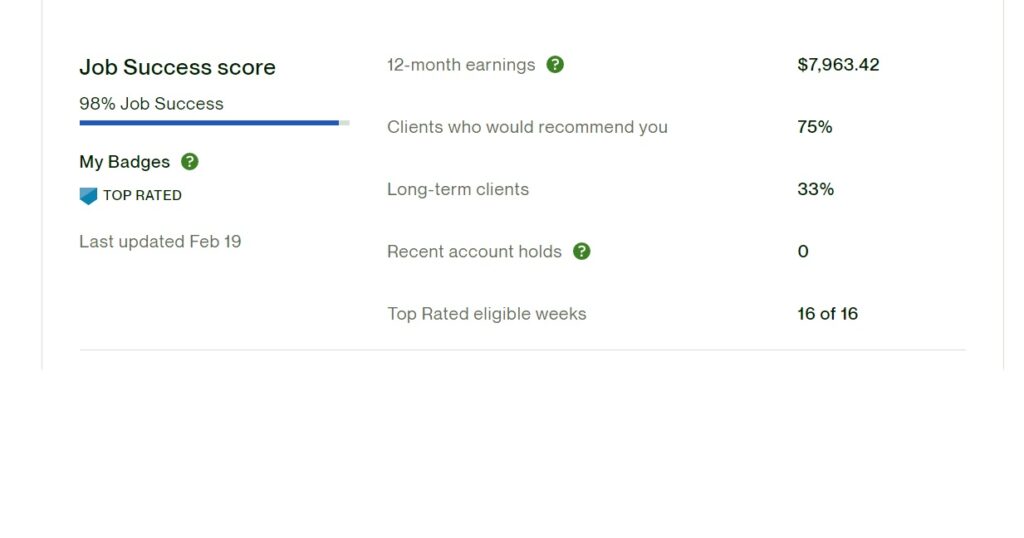In the digital age, blogging has become an essential tool for writers to express themselves, share their ideas, and connect with like-minded individuals. As a writer, choosing the best blogging platform can be daunting, with countless options available in the market. This comprehensive guide will explore the top blogging platforms for writers in 2023, discussing their unique features, pros and cons, and suitability for various types of writers.
1. WordPress.org: The Most Versatile Blogging Platform
WordPress.org is the most popular and widely-used blogging platform, powering over 40% of the internet. Its open-source nature and vast array of plugins and themes make it the most versatile choice for writers who want complete control over their blogs.
Key Features of WordPress.org
- Open-source and highly customizable
- Thousands of plugins and themes available
- SEO-friendly and mobile-responsive
- Large community and extensive documentation
Pros and Cons of WordPress.org
Pros:
- Full control over your blog’s design and functionality
- Scalable and suitable for both small and large websites
- No restrictions on monetization methods
Cons:
- Requires some technical knowledge to set up and maintain
- Hosting and domain costs can add up
Best Suited For:
Writers who are tech-savvy and want complete control over their blogs, as well as those who plan to monetize their blogs or grow them into large-scale websites.
2. Wix: A User-Friendly Website Builder
Wix is a famous website builder that offers an easy-to-use drag-and-drop editor, making it an excellent choice for writers with limited technical skills. With over 500 templates and numerous built-in tools, Wix allows you to create stunning blogs without any coding knowledge.
Key Features of Wix
- Intuitive drag-and-drop editor
- Over 500 templates to choose from
- Built-in SEO tools and analytics
- Free and premium plans available
Pros and Cons of Wix
Pros:
- Easy to use, even for beginners
- Large selection of templates and design options
- Regular updates and new features
Cons:
- Limited customization compared to WordPress.org
- Advertisements on the free plan
Best Suited For:
Writers who prioritize ease of use and are willing to sacrifice some customization options for a user-friendly website builder.
3. Medium: A Content-Focused Writing Platform
Medium is a unique blogging platform focusing on content rather than design. It offers a clean and minimalist interface, allowing writers to publish their work without distractions.
Key Features of Medium
- Clean and minimalist design
- Built-in audience and social sharing features
- Partner Program for monetization
- Easy-to-use editor with rich text formatting
Pros and Cons of Medium
Pros:
- Content-focused platform with a built-in audience
- Easy to use and get started
- No setup or maintenance required
Cons:
- Limited customization options
- Monetization relies on Medium’s Partner Program
Best Suited For:
Writers who prioritize content over design and want to connect with a built-in audience.
4. Blogger: A Classic and Free Blogging Platform
Blogger is a free blogging platform owned by Google that has been around for over two decades. With its straightforward interface and integration with other Google services, Blogger remains a popular choice for many writers.
Key Features of Blogger
- Free to use with a Google account
- Integration with Google services, such as Analytics and AdSense
- Customizable templates and design options
- Built-in social sharing and SEO tools
Pros and Cons of Blogger
Pros:
- Completely free and easy to use
- Reliable hosting and support from Google
- Monetization options through Google AdSense
Cons:
- Limited customization compared to other platforms
- Fewer updates and features than competitors
Best Suited For:
Writers looking for a simple, free blogging platform with basic customization options and integration with Google services.

5. Ghost: A Minimalist and Modern Blogging Platform
Ghost is a modern, open-source blogging platform focusing on simplicity and speed. With its minimalist design and built-in membership features, Ghost is an excellent choice for writers who want a fast, clutter-free blogging experience.
Key Features of Ghost
- Lightweight and fast-loading
- Clean, minimalist design
- Built-in membership and subscription features
- Markdown editor for a seamless writing experience
Pros and Cons of Ghost
Pros:
- Fast and lightweight, ensuring a smooth user experience
- Easy to use and maintain
- Integrated monetization options
Cons:
- Less versatile than WordPress.org
- Limited themes and plugins compared to other platforms
Best Suited For:
Writers who value a minimalist design, fast-loading pages, and an easy-to-use platform with built-in monetization options.
6. Squarespace: A Stylish and All-in-One Website Builder
Squarespace is an all-in-one website builder known for its stunning templates and design capabilities. With its easy-to-use editor and built-in tools, Squarespace is an excellent option for writers who want a visually appealing blog without the need for extensive technical knowledge.
Key Features of Squarespace
- Beautiful, professionally-designed templates
- Drag-and-drop editor for easy customization
- Built-in SEO, analytics, and marketing tools
- Integration with third-party services
Pros and Cons of Squarespace
Pros:
- Visually stunning design options
- Easy to use, even for beginners
- All-in-one platform with various built-in tools
Cons:
- More expensive than some competitors
- Limited customization compared to WordPress.org
Best Suited For:
Writers who want a visually stunning blog and are willing to pay for an all-in-one platform with built-in tools and features.
7. Weebly: A User-Friendly Platform with E-commerce Features
Weebly is a popular website builder and blogging platform known for its ease of use and built-in e-commerce capabilities. This platform is ideal for writers who want to create a blog with the option to sell products or services.
Key Features of Weebly
- Intuitive drag-and-drop website builder
- Responsive and customizable templates
- Built-in e-commerce capabilities
- Integration with third-party apps and services
Pros and Cons of Weebly
Pros:
- Easy to use, even for beginners
- Offers both blogging and e-commerce features
- Wide range of customization options
Cons:
- Limited design flexibility compared to some competitors
- Fewer advanced features than platforms like WordPress.org
Best Suited For:
Writers who want a user-friendly platform with the option to sell products or services directly from their blog.
8. Substack: A Newsletter-Focused Blogging Platform
Substack is a blogging platform specifically designed for writers who want to publish their content via email newsletters. With its simple, content-focused approach and built-in monetization options, Substack has quickly gained popularity among writers.
Key Features of Substack
- Email newsletter-focused publishing platform
- Clean and minimalist design
- Integrated subscription and monetization features
- No coding or design skills required
Pros and Cons of Substack
Pros:
- Simple, content-focused platform
- Built-in monetization options through paid subscriptions
- Easy to use and maintain
Cons:
- Limited customization and design options
- Relies on building an email subscriber base
Best Suited For:
Writers who want to focus on building an email newsletter audience and monetize their content through paid subscriptions.
9. Tumblr: A Microblogging Platform for Creatives
Tumblr is a microblogging platform that combines blogging with social networking features. It’s popular among creative writers, artists, and photographers who want to share their work in a more casual and engaging format.
Key Features of Tumblr
- Microblogging and social networking platform
- Wide range of post formats (text, photos, videos, etc.)
- Customizable themes and design options
- Integrated social sharing and reblogging features
Pros and Cons of Tumblr
Pros:
- Easy to use and maintain
- Engaging social features to help grow your audience
- Suitable for various content types
Cons:
- Limited monetization options
- Less suitable for long-form content
Best Suited For:
Writers who want to share short-form content in a more casual and social setting or who want to complement their main blog with a microblogging platform.
10. Gatsby: A Modern, Static Site Generator for Developers
Gatsby is a static site generator that uses modern web technologies like React and GraphQL. It is perfect for writers with web development skills who want a fast, high-performance blog with advanced customization options.
Key Features of Gatsby
- Static site generator built on React and GraphQL
- Fast-loading and optimized for performance
- Highly customizable through plugins and themes
- Integration with various content management systems
Pros and Cons of Gatsby
Pros:
- High-performance and fast-loading
- Advanced customization options for developers
- Strong developer community and documentation
Cons:
- Requires web development skills to use effectively
- Steeper learning curve than other platforms
Best Suited For:
Writers with web development skills who want a high-performance blog with advanced customization options.
Final Thoughts
The best blogging platform for you will depend on your unique needs, goals, and skillset. When making your decision, consider factors such as ease of use, customization options, monetization capabilities, and audience engagement. By carefully evaluating the features and benefits of each platform, you can choose the one that best aligns with your writing goals and helps you succeed in the online world.
As you embark on your blogging journey, remember that consistency, quality content, and engaging with your audience are key elements for long-term success. No matter which platform you choose, focus on delivering valuable content that resonates with your target audience and helps you establish a strong online presence.

Frequently Asked Questions
1. Which blogging platform is best for SEO?
WordPress.org, with its extensive range of SEO plugins and tools, is considered the best blogging platform for SEO.
2. Can I switch blogging platforms after I’ve started my blog?
Yes, it is possible to switch blogging platforms, but the process can be time-consuming and may require some technical knowledge. It is best to carefully consider your needs and choose the right platform from the start.
3. How do I monetize my blog?
Monetization options vary depending on the platform you choose. Some popular methods include advertising, sponsored content, affiliate marketing, and selling products or services. Research the monetization options available on your chosen platform to determine the best strategy for your blog.
4. How can I drive traffic to my blog?
Driving traffic to your blog can be achieved through various strategies, including SEO optimization, social media marketing, email marketing, and guest posting on other websites. By creating quality content and promoting it effectively, you can attract more visitors and grow your blog’s audience.
5. How often should I post on my blog?
The frequency of blog posts can vary depending on your niche, audience, and personal preferences. However, it’s essential to maintain a consistent posting schedule. Whether you post once a week or several times a month, consistency helps keep your audience engaged and encourages them to return for new content.
6. How long should my blog posts be?
Blog post length can vary greatly depending on the topic and your target audience. Generally, long-form content (1,500-2,000 words) is considered more valuable by search engines and can lead to higher search rankings. However, the key is to provide value to your readers, so focus on delivering comprehensive, well-researched content that addresses your audience’s needs and interests, regardless of word count.









